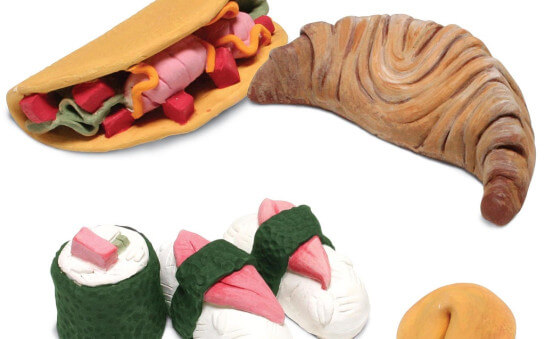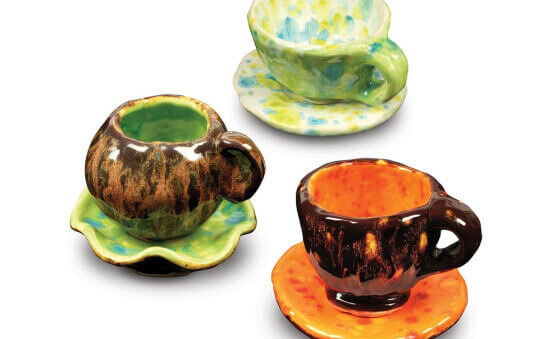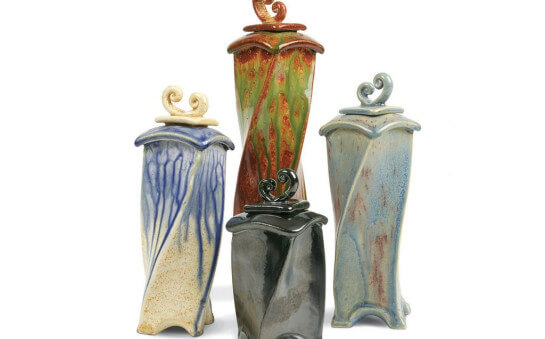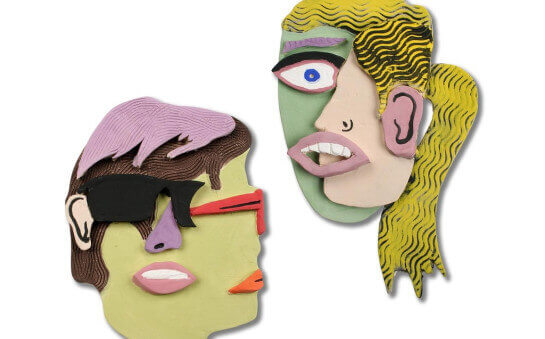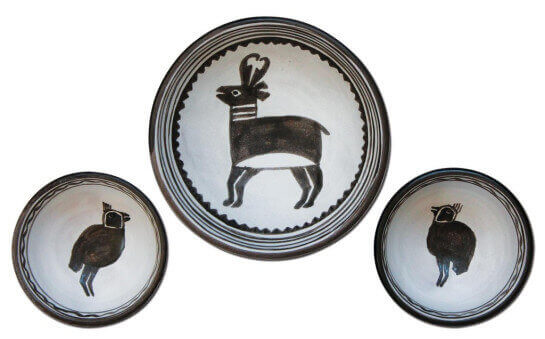Anthropomorphic Animals
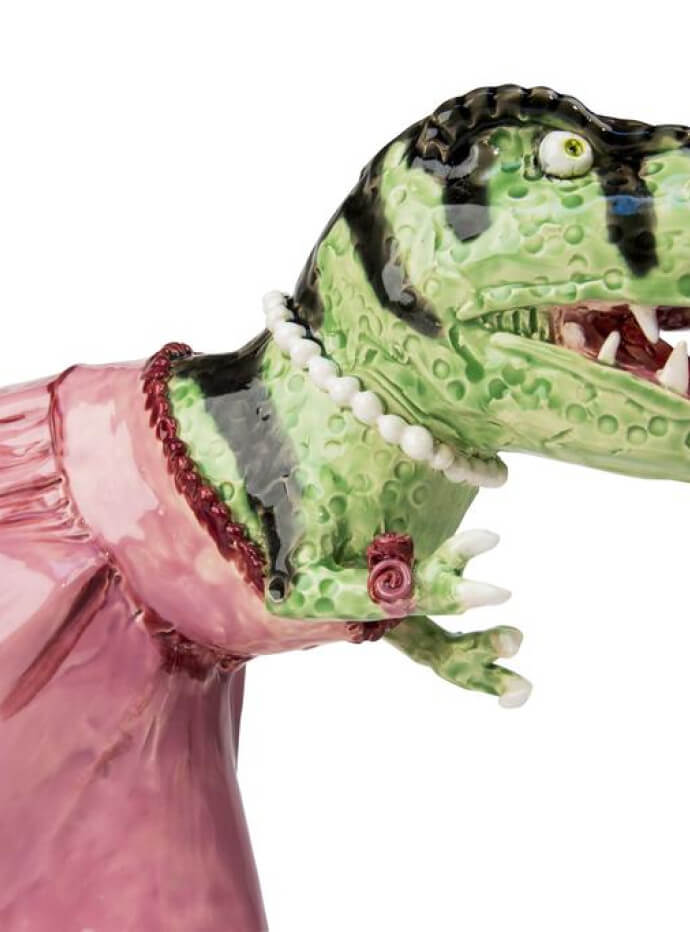
Construct Whimsical and Humorous Animals in Human Clothing.
Anthropomorphism is ascribing human traits to non-human objects and animals. Throughout history animals have been humanized for religious, literary, or artistic purposes. Have students look at Egyptian imagery and religion, Greek mythology, and Contemporary art to find many different sources of inspiration. Once they are done researching, have them select an animal. Have them develop a personality for the creature and a come up with a story and human outfit. Have fun!
Supplies List
- Pencil
- Paper
- Versa Clay No.20 Moist
- Terra Cotta Stoneware Clay No.77 Moist
- Fettling Knife
- Hardwood Paddle
- Canvas Covered Board
- Hardwood Modeling Tools
- Rubber Rib No. 1
- Teacher's Palette Glazes
- Liquid Gloss Glazes
- Glaze Brushes
- Hardwood Rolling Pin
- Hardwood Thickness Strips
- Scoring Tool
- White Art Clay No.25 Moist
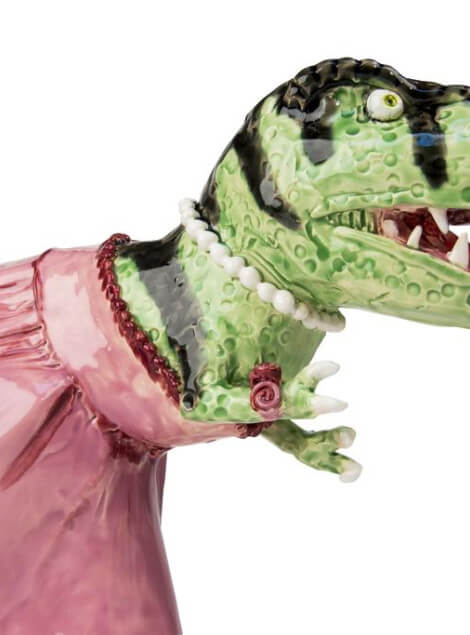
Video
Draw Animal in Clothing
Start with a sketch or copied image of the chosen animal and give it a persona through clothing. Examples include a Tyrannosaurus Rex in a Prom Dress, a Cat in Biker leather, a Rabbit in Pirate hat and Eyepatch, or a Deer in Hunting Clothing.
Sketch the construction
Make a second sketch planning out the construction of the figure. Reduce the piece to it's most basic shapes, cylinders, spheres, etc. Rather than trying to make an animal and add "clothing", which can lead to uneven drying and air pockets that might blow out in the kiln, make the clothing part of the form.
Pinch Main body
Pinch Shapes that can be joined for the body. Set aside and allow to become a little firmer (just under leather hard).
Slabs
Roll out slabs. Cut base or bottom. Figures don't need to have a flat base, but some might. It's a good idea to make the air hole in the base at this time.
Support Structure
Make a support slab if needed.
Body
Join pinch forms to make body. Score and slip and use a coil to join. Make sure to cut a hole that allows air flow between body and base.
Attach Body to Base
Manipulate Body
Use fingers or tools to give the body its general form, show musculature under clothing, etc. If needed, cut a hole to work from the inside.
Patch
Use a thin slab to patch openings made to manipulate the form. Don't add slabs on top of closed clay, as you might trap air that can blow out in the firing.
Paddle
Gently paddle to shape.
Head
Make head hollow is larger than 3/4" thick. Make as a pinch pot. Hold up to body for scale. Cut mouth to open.
Mouth
Use a slab to make mouth and tongue. Make teeth and join with slip.
Arms
Make arms solid and attach to body by scoring and slipping and sealing seam with a small coil. Toes and legs can be attached the same way. Add extra clay for the tail.
Preparing to Attach Head
Cut hole and score
Join Head
Smooth
Smooth using a metal scraper or rubber rib. Drape of fabric is made by adding small coils.
Ruffles
Edges of fabric are made with a small coil smoothed on one side. Ruffles are made with small coils crumpled to make a wiggle, then scored and attached.
Texture
Use a tool to give a texture. Fur might need a scoring tool or stiff brush, scales might require a round or cylindrical tool. Here a scaly texture is made with a wooden dowel.
Eye Socket
Press in for the eye socket and score.
Eyes
Eyeball is made with a small ball, pressed into eye socket gently. Use a pen lid or a small tool to make pupils in eyes.
Eye Ridge
Eyelids are optional depending on the animal. Here An eye ridge is made with a coil, textured with a wood tool.
Sprigging Details
Many details are added by sprigging -- making small parts and joining. Liberally use thick slip and press gently to join.
Firing
Finished Deb ready to dry and fire. Dry slowly and thoroughly before bisque firing.
Glazing
Glaze with glazes which will suit the textures and patterns of the chosen animal. We used LG series glazes for Debs body, and Teachers Choice / Teachers Palette for her dress, teeth, and eyes.
Completed Deb the Dino
Additional Examples: Geisha Fox
The Fox was glazed with LG glazes, her clothing and fan used the Teachers Choice / Teachers Palette line of glazes.


